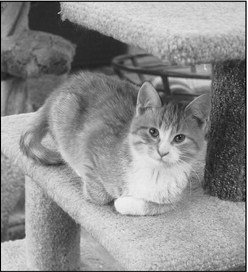Animal numbers down as Humane Society copes with COVID


The COVID-19 pandemic caused quite a few disruptions at the Clark County Humane Society (CCHS), but now with things opening up again, they’re looking at trying to get some thing...


The COVID-19 pandemic caused quite a few disruptions at the Clark County Humane Society (CCHS), but now with things opening up again, they’re looking at trying to get some thing...